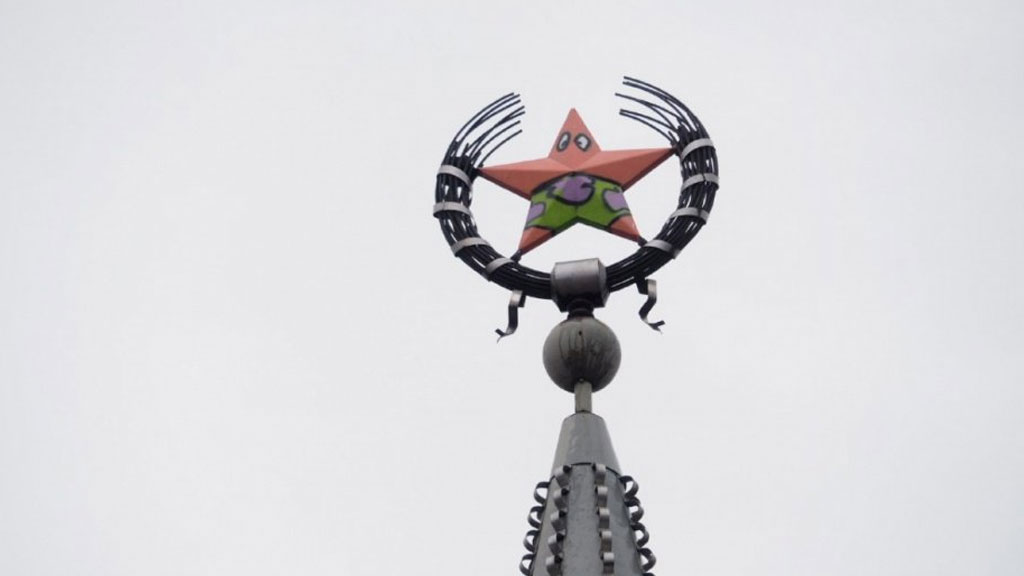Because Vladimir Putin seeks both recognition as the leader of a superpower and a new Yalta at which he and Western leaders will partition the world into spheres of influence and because he can only move toward that goal by new acts of aggression, the Kremlin leader is likely to attack a NATO country next, according to Vitaly Portnikov.
The situation in Ukraine is moving toward a frozen conflict out of which he cannot extract more benefits for himself and his self-conception, the Kyiv analyst says in a commentary
for Baku’s Haqqin.az agency, and consequently he is looking elsewhere with the Baltic countries being the most likely target.
Portnikov has no special inside knowledge in this regard, but both his impressive record as an analyst and the logic he suggests Putin is following makes what he has to say compelling if extremely frightening and deserves more attention than it receive if it appears only on an Azerbaijani site.
Since Minsk, European countries have indicated that they are prepared to send military instructors to Ukraine and Ukrainian President Petro Poroshenko has succeeded in purchasing military equipment. “In practice,” the analyst says, “this means the legalization of a mediation mission” which will allow Kyiv to get what it needs without direct aid from the US or NATO.
This effort of the West “not simply to strengthen the Ukrainian line of the front after Minsk 2 but also to internationalize it demonstrates to Russia that if it attacks, the victims would be not only Ukrainian soldiers and citizens but also NATO personnel – and this is an entirely different level of involvement and responsibility of the aggressor.
At the same time, Putin shows no sign of backing down in Ukraine. Despite giving lip service to the Minsk accords, the Russian leader has continued to strengthen the positions of Russian forces near Mariupol. And more generally, Russia “has begun large-scale exercises” along the border of the Baltic countries, all of which are members of NATO.
“For the West, it is important if not to stop the conflict and restore the territorial integrity of Ukraine then to at least ‘freeze’ it along the contact line.” But for Putin, “such ‘a freezing’ will not bring any dividends. Rather the reverse.” Ukraine will be able to stabilize, Western leaders won’t have any particular reason to lift sanctions or talk with him about a new world order, and the shortcomings of Putin’s economic system will be ever more obvious.
So what will happen next? “What will the West do?” It will try to achieve peace. “What will Putin do? He will fight,” Portnikov says. He can’t achieve anything in peacetime, but war gives him a chance to use the one part of his state which is still relatively strong in order to bring pressure to bear on other leaders to take him and Russia into greater consideration.
“Putin’s goal,” Portnikov says, is to have a status equal to that of US President Barack Obama and then together with him “resolve the fates of the world,” much as he imagines Soviet leaders did with Washington during the Cold War. And Putin’s “only instrument” to achieve that is war so that he can become the embodiment of Dr. No, albeit not so comic.
But Putin recognizes that not all military actions bring him equal benefits. More moves in Ukraine will not prompt Western leaders to rush to meet with him. They may instead simply increase sanctions and his isolation – and even do more to help Ukraine. What they won’t do is agree to some new grand bargain. Ukraine isn’t useful to Putin in that regard.
But one act of aggression, albeit an extremely risky one, that could prompt the West to talk with him about “a new Yalta” would be an attack on a NATO country – and in Russia’s case that means Estonia, Latvia or Lithuania. Such an attack would show very quickly whether NATO leaders are prepared to act “seriously” or to “again limit themselves to sanctions and anger.”
Such a move could blow up in Putin’s face, Portnikov concludes, but it is the only one available just now that could have the potential to lead some in the West to agree to “a real conference on the world order, a new Yalta,” if it didn’t lead to a war before such a conference could be convened.





